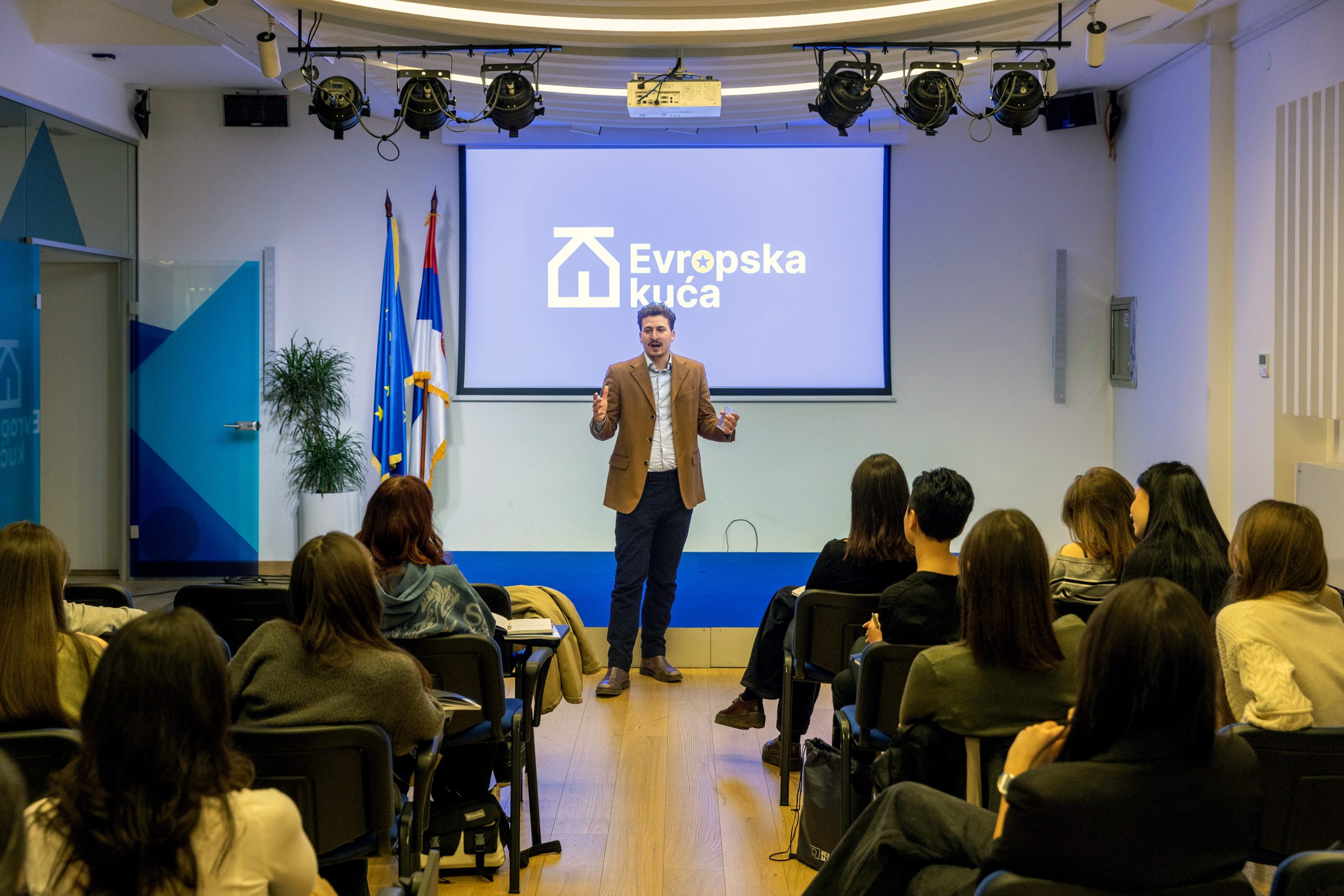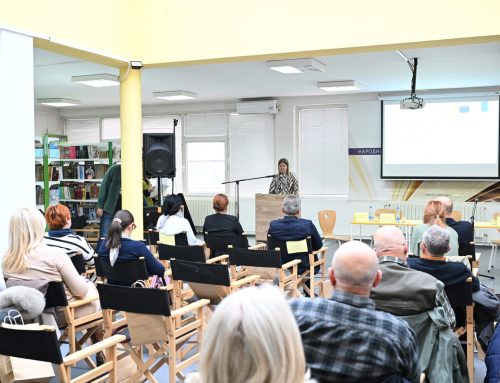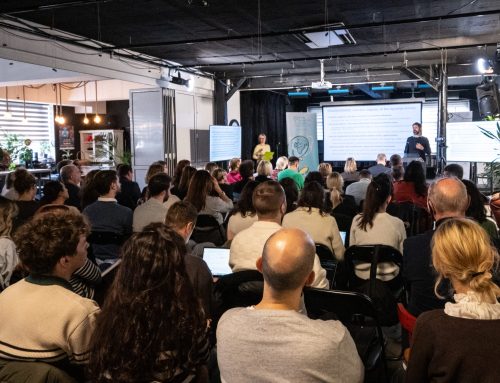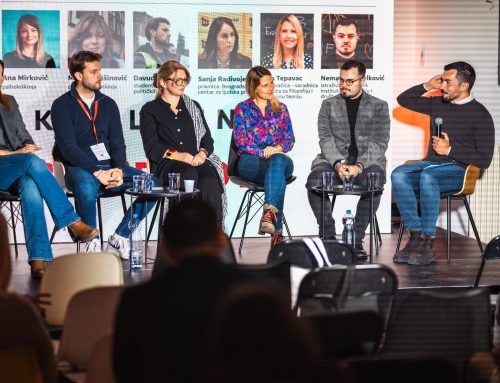The twelfth generation of the European Debate School has officially begun its training and workshops at the Europe House in Belgrade.
“The European Debate School is a very important program for us, which we have been running for twelve consecutive years. The aim is to bring together young people from across Serbia in one place to practice both debating and critical thinking,” said Snežana Andrić, Networking and Programme Manager at the European House, as she welcomed this year’s participants.
Following the opening session, the European Debate School hosted a presentation on EU institutions by Manuel Munteanu, Head of Information, Communication, and Media at the Delegation of the European Union to Serbia. During the presentation, participants had the opportunity to learn about the structure of the European Union and its “state-like” bodies, gaining a broader understanding of the EU and its legislative debating system.
Participants were also encouraged to ask questions about the European Union and Serbia’s relationship with it. Common topics included Serbia’s EU accession process, the workings of the trilogue and member states, and budget allocation.
After the opening remarks and presentation, participants engaged in introductions, both with each other and with the trainers who will guide them through the four-day workshop. The first day continued with a focus on learning about debate formats, beginning with a lecture on the British parliamentary style, allowing participants to deepen their understanding of argumentation throughout the day.
Over the next four days, participants will continue developing arguments and strategies for effective debating, culminating in a full-scale debate simulation.
European Debate School is a long-standing educational project organized by the Europe House and the academic debate network Otvorena komunikacija, with support from the Delegation of the European Union to the Republic of Serbia.
The program aims to equip high school and university students with skills in debating, argumentation, critical thinking, and public speaking, while also introducing them to the European Union, its institutions, and the European integration process.




